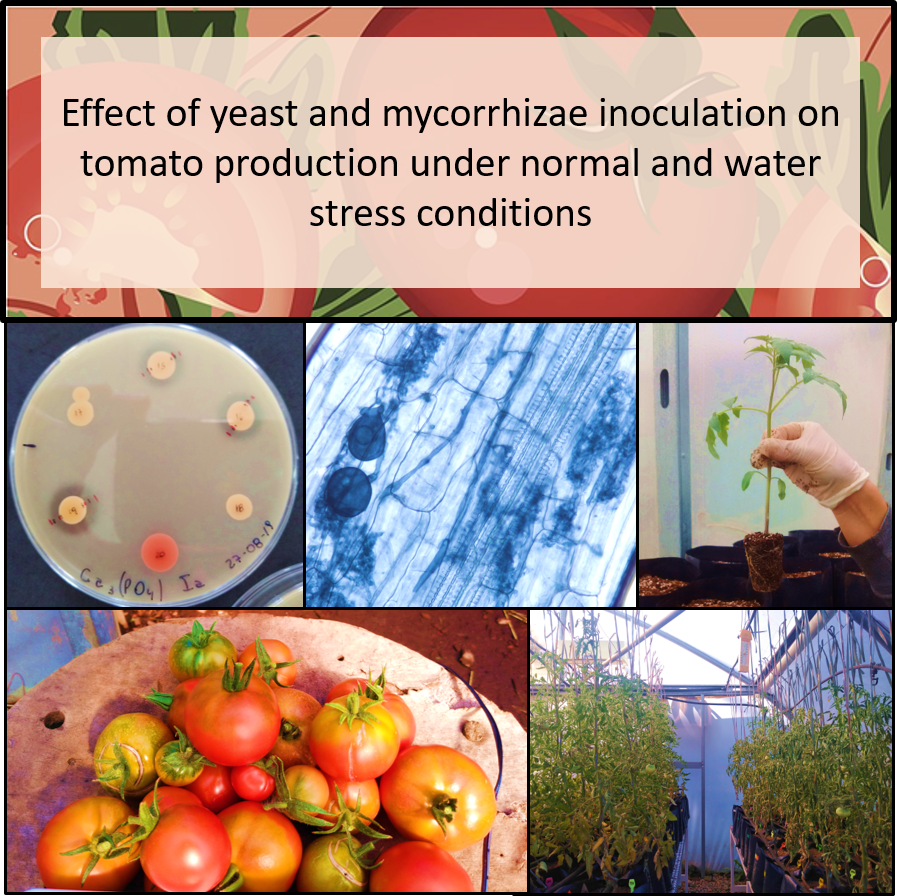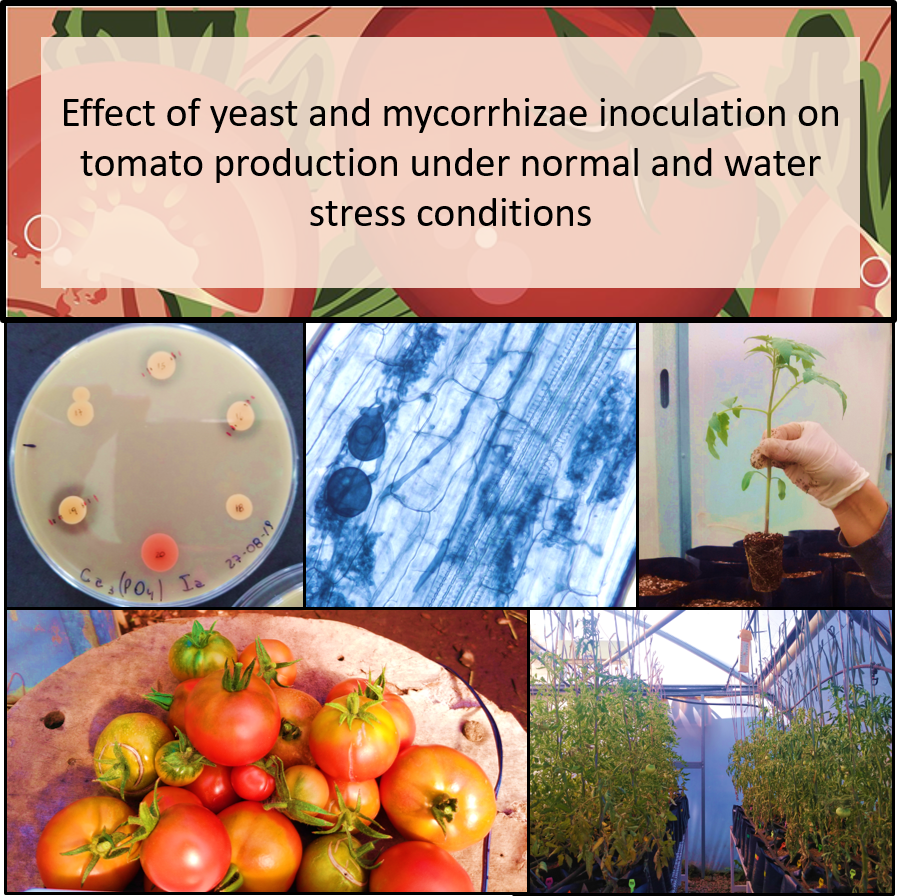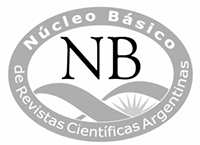Effect of yeast and mycorrhizae inoculation on tomato production under normal and water stress conditions
DOI:
https://doi.org/10.48162/rev.39.116Palabras clave:
Levaduras nativas del suelo, Micorrizas arbusculares, Productividad del tomate, eficiencia del uso del agua, promoción del crecimiento vegetalResumen

The integration of beneficial microorganisms into agricultural systems can improve crop resistance to stress and increase yields. We studied tomato (Solanum lycopersicum) production in a greenhouse experimental trial over a complete growing season. The experimental design involved three factors: irrigation condition (normal/low), addition of the arbuscular mycorrhizal fungi Funneliformis mosseae (with/without), and inoculation with four native soil yeasts (Candida aff. ralunensis; Candida sake; Lachancea nothofagi and Candida oleophila). Co-inoculation of F. mosseae and yeasts did not affect the tomato plants. Addition of F. mosseae increased mycorrhizal colonization and production variables regardless of irrigation level; however, its effects on growth were variable. None of the inoculated yeasts increased mycorrhizal colonization. C. aff. ralunensis and C. oleophila inoculation increased stem diameter under all conditions studied. C. aff. ralunensis inoculation enhanced fruit set and the fruit/flower ratio under normal irrigation conditions, while C. sake inoculation increased the fruit/flower ratio under low irrigation conditions. Arbuscular mycorrhizae inoculation is presented as a beneficial production strategy to increase plant tolerance and improve water use. We propose that C. aff. ralunensis and C. oleophila inoculation improves plant vigor.
Highlights:
- Tomato production under greenhouse conditions was studied during a complete growing season following a three-factor trial: irrigation condition (normal/low), addition of arbuscular mycorrhizal fungi and inoculation with four native soil yeasts.
- Addition of arbuscular mycorrhizal increased mycorrhizal colonization and production variables regardless of irrigation level.
- Inoculation with two of the yeasts studied increased stem diameter under all conditions studied.
- Utilizing indigenous microorganisms could represent a promising alternative to external inoculants, potentially cutting down production costs and eliminating the necessity of introducing foreign microorganisms into the environment.
Descargas

Descargas
Publicado
Cómo citar
Número
Sección
Licencia
Derechos de autor 2018 Revista de la Facultad de Ciencias Agrarias UNCuyo

Esta obra está bajo una licencia internacional Creative Commons Reconocimiento-NoComercial-CompartirIgual 3.0.
Aquellos autores/as que tengan publicaciones con esta revista, aceptan las Políticas Editoriales.











.jpg)




